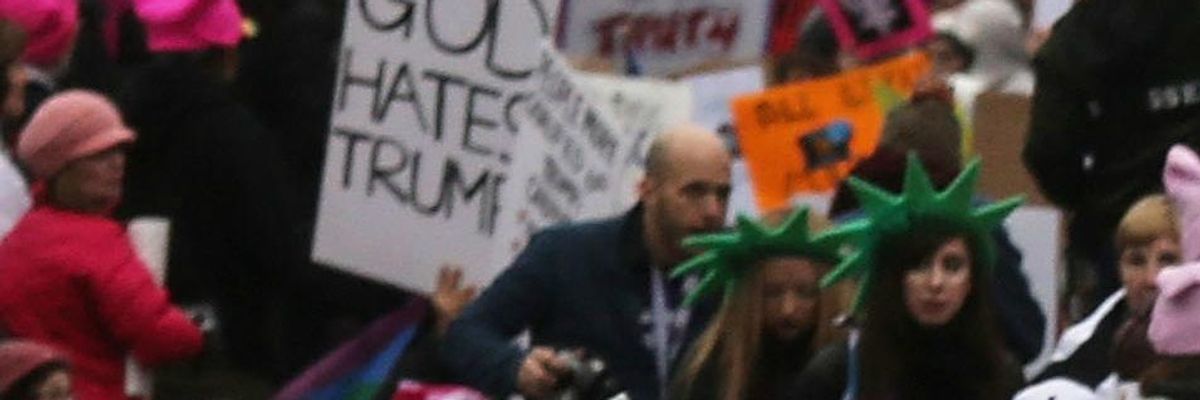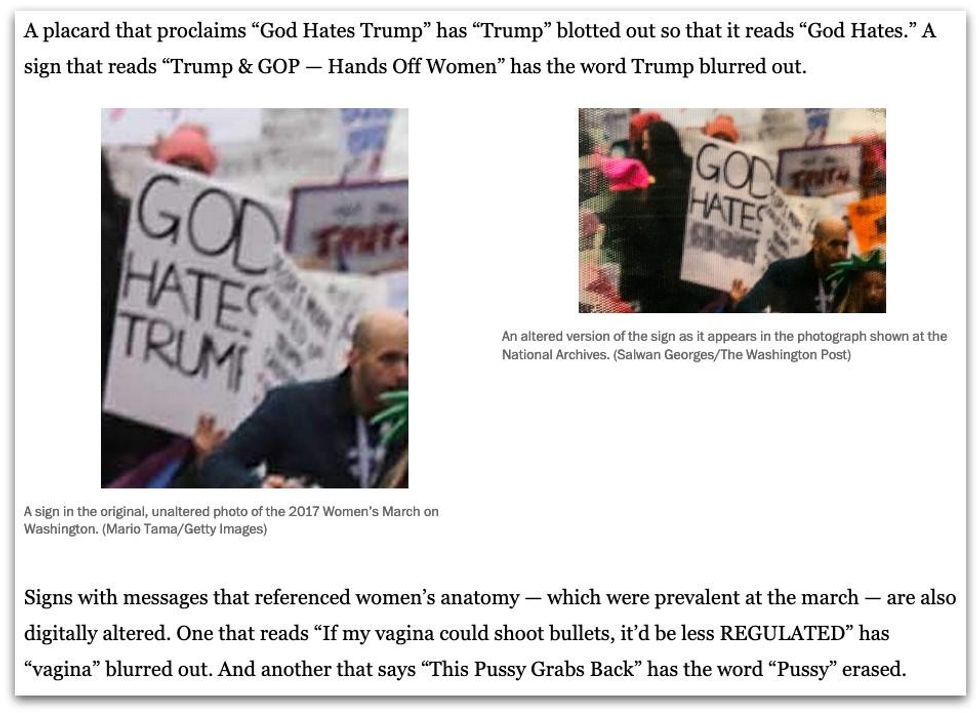The ACLU was among the critics denouncing the National Archive on Saturday after it was reported the U.S. government agency admitted it had doctored photos of Women's March demonstrations that took place the day after President Donald Trump's inauguration in 2017.
Displayed for an exhibit celebrating the hundredth anniversary of the women's suffrage movement, the Washington Postreported Friday night that the Archives "acknowledged in a statement this week that it made multiple alterations to the photo of the 2017 Women's March showcased at the museum, blurring signs held by marchers that were critical of Trump."
Referencing the so-called "pussy hats" that became a proud symbol of the women-led anti-Trump protests that year, the Post notes that "words on signs that referenced women's anatomy were also blurred."
Louise Melling, deputy legal director of the ACLU, said in response that the decision to alter the photographs is inexcusable.
"The government can't airbrush history or erase women's bodies from it," Melling said. "It is the job of the National Archives to document history, not alter it to serve the president's ego."
From the Post:
While the Archives claimed they altered the photos only because the public exhibition would be host to many students and young children--and would never do so for archival purposes--Rice University historian Douglas Brinkley told the Post he didn't buy that excuse.
"There's no reason for the National Archives to ever digitally alter a historic photograph," Brinkley said. "If they don't want to use a specific image, then don't use it. But to confuse the public is reprehensible. The head of the Archives has to very quickly fix this damage. A lot of history is messy, and there's zero reason why the Archives can't be upfront about a photo from a women's march."
The revelations emerged just as women and their allies nationwide participated in the fourth annual Women's March to express their continued opposition to Trump and his administration.
On Saturday afternoon, the Archive admitted it made an error and issued a public apology.
"We apologize," the Archives said in a statement, "and will immediately start a thorough review of our exhibit policies and procedures so that this does not happen again."
ACLU's Melling, however, said more was needed.
"Apologizing is not enough," she said. "The National Archives must explain to the public why it even took the Orwellian step of trying to rewrite history and erasing women's bodies from it, as well as who ordered it."


